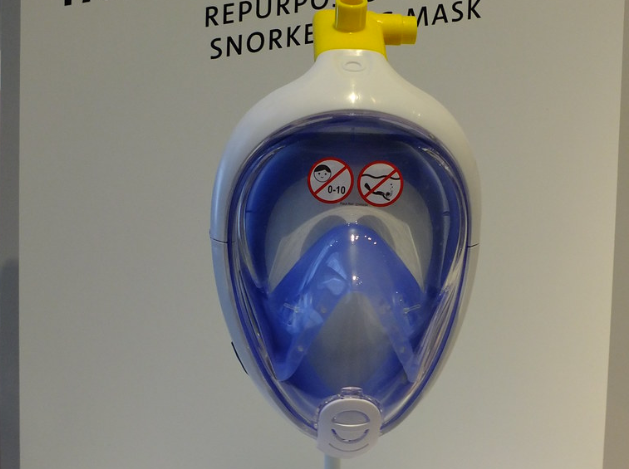

Obstructive sleep apnea (OSA) is characterised by difficulty breathing during sleeping owing to constricted airways. While OSA is fairly prevalent, it can have major implications such as daytime tiredness, decreased work productivity, and cardiovascular disease. Snoring loudly in a good night's sleep and feeling tired the next day may indicate sleep apnea. Being overweight, nasal congestion, smoking, and alcohol usage are all risk factors for OSA.
Sleep apnea is frequently misdiagnosed, so it's critical to consult your doctor if you suspect you have it.
Continuous positive airway pressure (CPAP) therapy is commonly used to treat OSA and can be highly effective. A tiny machine pumps compressed air through your nose through a tube and mask during CPAP therapy to keep air pressure assist keep your airways open.
If your doctor has prescribed CPAP therapy for your sleep apnea, you'll need to buy a sleep apnea mask. We’ll discuss how to find and buy an appropriate model. We’ll also talk through insurance coverage and other CPAP machines and accessories to help you get the most out of your sleep therapy too.
Whether you are diagnosed at a sleep lab or conduct an at-home sleep study, you will need a prescription for your sleep apnea masks. A sleep specialist will assess your test results and transmit them to your doctor for review. Based on your readings, your doctor can then propose the appropriate CPAP machine and mask.
Based on the results of your sleep study, your doctor will recommend the best type of positive airway pressure therapy (PAP) for you. While a CPAP machine is usually the first choice for sleep apnea treatment, other PAP devices, such as bi-level positive airway pressure (BiPAP) and auto-titrating positive airway pressure (APAP), are sometimes prescribed as well.
If you have a prescription for CPAP therapy, you must follow your doctor's instructions regarding pressure settings.
If you get a prescription, you can buy a CPAP machine from your insurance company, a local clinic, a third-party shop, or straight from the manufacturer. Each choice has advantages and disadvantages.
Buying straight from your health insurance provider takes the worry out of coverage possibilities, but you're limited to only a few machines. Be prepared to provide your prescription as well as the results of your sleep study. Your provider will also monitor your usage data to ensure you're following therapy standards.
If your deductible is very large, purchasing from your insurance carrier may not be the most cost-effective option. It may be less expensive to purchase both the machine and the accessories like nasal pillows and headgear from a merchant. This would most likely have competitive prices and provide you with more models to pick from.
Buying from a local medical supply store, like buying from a sleep clinic, gives you to get a better sense of the style and size of the machine, face mask, and accessories. Store associates can give recommendations depending on the details of your sleep study and your doctor's prescription. It's also often easier to return items in person if the model isn't a good fit.
If you had a PSG at a sleep clinic, it might be fairly easy to acquire face masks and CPAP masks for sale directly from them. The clinic can suggest a nasal mask model based on your sleep routine, and you’ll be able to try on various varieties of nasal masks in person. You will also have the benefit of professional supervision, and you can also do a test run of the nasal pillow masks to be sure you’re operating them properly.
Buying a nasal mask or CPAP mask online provides you with the most possibilities. It's also simpler to compare prices and choose the greatest bargain for your needs. Purchase exclusively from a reputable store or directly from the manufacturer, as some websites sell non-FDA-compliant gadgets. Always inquire about a model's sleep trial or return policy. When purchasing a CPAP mask online, you must either email, fax or upload your prescription.
Hopefully, our guide has helped you figure out how to buy the right mask types of full-face masks and nasal pillow masks. Before purchasing a mask, be sure to research its quality and style. In case of doubt, consult a sleep apnea specialist or CPAP mask manufacturer.
Leave a comment